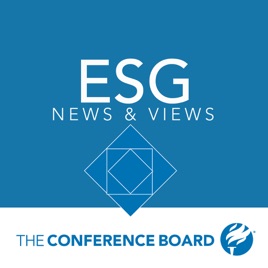
Advertise on podcast: ESG News and Views
Rating
3.8 from
Country
This podcast has
31 episodes
Language
Publisher
Explicit
No
Date created
2019/09/23
Average duration
38 min.
Release period
52 days
Description
ESG News and Views, from The Conference Board ESG Center, provides compelling in-depth interviews with ESG thought leaders, and timely updates on hot button topics in corporate governance, sustainability, citizenship and philanthropy.
Podcast episodes
Check latest episodes from ESG News and Views podcast
Surviving a Near-Death Experience: Lessons on Resilience (Pt 2)
2023/04/11
Geralyn Ritter knows about personal and organizational resilience. She was on Amtrak Train #188, which derailed outside Philadelphia in 2015 at 106 miles per hour. The crash killed eight people and injured more than 200. Geralyn was critically wounded. Her doctors use the word “miraculous” to describe her survival and recovery. She also knows about organizational resilience, as the current Head of External Affairs and ESG for Organon, following twelve years at Merck, where she held numerous leadership positions, including Senior Vice President, Corporate Secretary and Assistant General Counsel, Head of Global Public Policy and Corporate Responsibility, and President of the Merck Foundation. She is the author of Bone by Bone: A Memoir of Trauma and Healing.
In part one of this two-part podcast, Paul Washington, Executive Director of the ESG Center, speaks with Geralyn about surviving the accident, her road to recovery, and lessons in personal resilience. They discuss the importance of optimism, acceptance, an action orientation, connection, and a sense of purpose. They discuss how these traits are equally important for leaders, organizations, and society.
In part two, they go deeper into the subject of organizational resiliency, with practical insights on how to develop a more resilient organization, including the role of ESG in creating a healthy organization, the link between resiliency and sustainability, maintaining resilience in a hybrid work environment, and the value of sharing stories of personal resilience in building a stronger organization.
The discussion spans 9/11 to the COVID-19 pandemic to Silicon Valley Bank, with insights for all of us on resilience.
Related Resources:
Bone by Bone: A Memoir of Trauma and Healing, Geralyn S. Ritter, June 2022
Consider Operational Resilience a Competitive Advantage, The Conference Board, 2023
C-Suite Outlook 2023: On the Edge: Driving Growth and Mitigating Risk Amid Extreme Volatility, The Conference Board, January 2023
Crisis Management in the Era of "No Normal," The Conference Board, September 2021
Five Ways a Sustainability Strategy Provides Clarity During a Crisis, The Conference Board, April 2020.
more
Surviving a Near-Death Experience: Lessons on Resilience (Pt 1)
2023/04/11
Geralyn Ritter knows about personal and organizational resilience. She was on Amtrak Train #188, which derailed outside Philadelphia in 2015 at 106 miles per hour. The crash killed eight people and injured more than 200. Geralyn was critically wounded. Her doctors use the word “miraculous” to describe her survival and recovery. She also knows about organizational resilience, as the current Head of External Affairs and ESG for Organon, following twelve years at Merck, where she held numerous leadership positions, including Senior Vice President, Corporate Secretary and Assistant General Counsel, Head of Global Public Policy and Corporate Responsibility, and President of the Merck Foundation. She is the author of Bone by Bone: A Memoir of Trauma and Healing.
In part one of this two-part podcast, Paul Washington, Executive Director of the ESG Center, speaks with Geralyn about surviving the accident, her road to recovery, and lessons in personal resilience. They discuss the importance of optimism, acceptance, an action orientation, connection, and a sense of purpose. They discuss how these traits are equally important for leaders, organizations, and society.
In part two, they go deeper into the subject of organizational resiliency, with practical insights on how to develop a more resilient organization, including the role of ESG in creating a healthy organization, the link between resiliency and sustainability, maintaining resilience in a hybrid work environment, and the value of sharing stories of personal resilience in building a stronger organization.
The discussion spans 9/11 to the COVID-19 pandemic to Silicon Valley Bank, with insights for all of us on resilience.
Related Resources:
Bone by Bone: A Memoir of Trauma and Healing, Geralyn S. Ritter, June 2022
Consider Operational Resilience a Competitive Advantage, The Conference Board, 2023
C-Suite Outlook 2023: On the Edge: Driving Growth and Mitigating Risk Amid Extreme Volatility, The Conference Board, January 2023
Crisis Management in the Era of "No Normal," The Conference Board, September 2021
Five Ways a Sustainability Strategy Provides Clarity During a Crisis, The Conference Board, April 2020.
more
What’s the Role of the Board and C-Suite in Addressing Health Equity?
2023/02/24
The COVID-19 pandemic shone a spotlight on the level of health inequity in the US, where access to health care can depend on a person’s zip code, income, insurance, and contacts in the medical profession. This podcast discusses the role that companies – and, specifically, boards of directors – can play in helping to address this problem, which accounts for approximately $320 billion in the US.
The discussion makes clear that all companies – not just those in the health sector – can play a role through the health and other benefits they provide to their employees; and that boards can ensure that their companies address health equity as part of their broader strategy to attract, retain, and develop the workforce they need to execute the firm’s strategy.
In this podcast, Paul Washington, Executive Director of the ESG Center, speaks with two experts: Dr. Jay Bhatt, Executive Director of the Deloitte Center for Health Solutions and the Deloitte Health Equity Institute, and Dr. William Payne, a founding member of the Black Directors Health Equity Agenda, a Chicago-area orthopedic surgeon and co-founder of the telehealth platform MyOwnDoctor about health equity. They discuss what it means, why it’s an issue the business community should pay attention to, and the role of the board and C-Suite in driving meaningful progress on this issue.
Related resources:
Equitable Pay and Health Care Top Consumer Wish List for Corporate Social Initiatives (Research report, July 2022)
The Role of Corporate Citizenship in Addressing Health Equity (Webcast, April 2022)
C-Suite Outlook 2023: On the Edge: Driving Growth and Mitigating Risk Amid Extreme Volatility (January 2023)
The US Deloitte Health Equity Institute
US Health Care Can’t Afford Health Inequities
more
How to ESG: Preparing for ESG Disclosures
2022/11/10
The ESG reporting landscape is quickly evolving. Not only is it cluttered with an ever-growing number of rating agencies, initiatives to harmonize reporting frameworks and standards are underway, and regulations are rapidly arising in many jurisdictions – making ESG disclosure a business reality rather than a passing fad. So what’s a company to do?
In this podcast, Merel Spierings, Corporate Governance Researcher at the ESG Center, speaks with Andrew Fowler, Partner at the law firm of Hughes Hubbard & Reed about how companies can prepare for upcoming disclosure requirements – specifically the SEC’s proposed rules on climate. They also discuss a free resource that Hughes, Hubbard, and Reed recently put out, How to ESG: A Resource Guide for Establishing an ESG Program for your Company, which provides practical guidance on addressing emerging ESG norms and requirements.
more
Hurricane Ian: Lessons from Past Disasters and Preparing for a New Era of Disaster Response
2022/10/07
Natural disasters are increasing in both frequency and intensity. Yet, only 22 percent of corporate citizenship executives say their number one priority is preparedness – taking action to mitigate the effects of a natural disaster before it occurs. Only 3 percent of corporate citizenship executives prioritize long-term recovery and reconstruction.
In this podcast, Patty McIIreavy, President and CEO of the Center for Disaster Philanthropy speaks with Lindsay Beltzer and Jeff Hoffman from The Conference Board ESG Center to discuss the impact of Hurricane Ian and why the traditional playbook of responding with dollars, in-kind donations, and volunteers, while critical, is not enough. A greater focus on disaster preparedness and long-term recovery projects can pay dividends for both companies and communities and ensure these programs have maximum impact over time.
Additional Resources:
Disaster Philanthropy Practices 2021 Corporate Citizenship Watch: A New Era of Disaster Philanthropy - How Companies Can Lead the Way Corporate Citizenship Watch Disaster Philanthropy: Fifteen Years after Hurricane Katrina - Lessons Learned and Planning for the Future Resources from the Center for Disaster Philanthropy:
Educational Resources - Center for Disaster Philanthropy Here's how we can make a difference before disaster strikes - Center for Disaster Philanthropy 2022 Atlantic Hurricane Season - Center for Disaster Philanthropy
more
What does the C-suite Actually Think of Their Boards? A Conversation on Board Effectiveness
2022/05/23
Only 29 percent of C-suite executives rate their board’s effectiveness as good or excellent. And 74 percent of executives say two or more of their directors should be replaced. That’s despite the fact that the overwhelming majority of C-suite executives say their boards understand the company’s strategy, risks and opportunities, and competitive landscape -- and that nearly 90 percent say their directors have independent judgment and are willing to challenge management. In this podcast, Paul Washington, Executive Director of the ESG Center, speaks with Leah Malone, Director of the Governance Insights Center at PwC, and author of Board Effectiveness: A Survey of the C-suite (2021 Edition) to discuss what’s driving the gap between board performance and expectations, how the C-suite’s view of the board compares to what directors see when they look in the mirror, and several practical steps that companies can take to close the gap.
Additional Resources:
Toward Stakeholder Capitalism
more
What the New Landmark #MeToo Law Means for the Future of Business and Employees
2022/03/30
Join Senator Kirsten Gillibrand (D-NY), Congressman Ken Buck (R-CO) and Gretchen Carlson, the woman whose lawsuit helped ignite the #MeToo movement and who co-founded the non-profit Lift Our Voices, to discuss the recent groundbreaking bipartisan legislation, The Ending Forced Arbitration of Sexual Assault and Sexual Harassment Act.
Passed with strong bipartisan support in February, the legislation marks one of the most significant workplace reforms in the last 50 years. Under the legislation, employers would be prohibited from requiring workers to settle discrimination and harassment claims through arbitration. Instead, employees have the choice to file suit in court with their own legal representation.
Listen to learn:
What the law is and why it matters: What the law does, doesn’t do, and its significance How a grassroot movement led to bipartisan support, and what it took to pass in both the House and Senate What companies should consider doing now, both in response to the legislation and in creating a safe and harassment-free environment What’s next, including potential future federal legislation addressing forced arbitration in other contexts and state legislation relating to non-disclosure agreements.
more
Director-Shareholder Engagement: Practical Advice for Constructive Conversations
2022/03/28
Traditionally, corporate board members played a limited – and only occasional – role in discussions with investors. But now investors expect to hear from independent directors on the board’s oversight of ESG issues. And companies are recognizing that involving their directors in discussions with investors can have significant near-term and long-term benefits.
In this podcast, Paul Washington, Executive Director of the ESG Center, speaks Bill Ultan, Managing Director at Morrow Sodali, to discuss what’s happening, why, the do’s and don’ts of effective engagement, and how both directors and investors can make their engagements as constructive as possible. As more companies involve their directors in shareholder engagement, they should do so with a clear purpose in mind and ample preparation beforehand.
Additional resources:
Six Ways Boards Can Prepare for a Challenging Proxy Season
2022 Proxy Season Preview and Shareholder Voting Trends
Evolving Trends in ESG Disclosure: Morrow Sodali Q&A with Maryann Waryjas
Lighthouse – March 2022 Edition
more
C-Suite Outlook 2022: Which ESG Issues Do Leaders Care About
2022/02/24
For the year ahead, what are the environmental, social, and governance (ESG) priorities of business leaders around the world? This year’s annual survey of the C-suite provides fascinating ESG insights. Listen to this ESG News and Views podcast as Chuck Mitchell, Executive Director of Content Quality, unpacks the findings with Paul Washington, Executive Director of the ESG Center.
more
Corporate Political Activity: Opportunity Amid Scrutiny with Adie Olson, Jason Abel, and Bruce Freed
2022/02/16
Many have viewed corporate political activity with skepticism, if not suspicion. In 2021, companies faced a combination of surprises and scrutiny that made their political activity exponentially more difficult . . . and 2022 promises to be equally, if not more, challenging.
In this podcast, Paul Washington, Executive Director of the ESG Center, speaks with experts, Adie Olsen and Jason Abel, Partners at Steptoe and Johnson, and Bruce Freed, President of the Center for Political Accountability, to address some of the myths and misunderstandings about corporate political activity, the challenges corporate PACs, company political contributions, and lobbying faced last year, as well as what to expect in the mid-term election year of 2022.
Listen in to find out how this era of heightened scrutiny may provide an opportunity for fresh thinking about corporate political activity.
Additional Resources:
From the Conference Board
Under a Microscope: A New Era of Scrutiny for Corporate Political Activity Shareholder Voting Dashboard Many Orgs Say 2022 Will Be Harder for Political Activity (Survey) Corporate Political Activity Proposals From Steptoe and Johnson
Adie J. Olson - Partner | Steptoe & Johnson LLP Jason Abel - Partner | Steptoe & Johnson LLP DOJ Seeks Comments on Changes to the Foreign Agents Registration Act Regulations | Steptoe & Johnson LLP From the Center of Political Accountability
2021 CPA-Zicklin Index of Corporate Political Disclosure and Accountability Conflicted Consequences CPA-Wharton Zicklin Model Code of Conduct for Corporate Political Spending
more
Companies’ Impact on Economic Opportunity & Fairness – a conversation with Martin Whittaker
2021/10/27
While there is a lot of focus today on companies’ role in addressing environmental and social issues, less attention is being paid to companies’ role in with respect to traditional economic challenges. Yet, through their business operations, almost all companies can have more direct impact on issues of economic opportunity and fairness than they can on the environment or on social legislation.
And there’s an additional imperative: a recent survey by The Conference Board’s Marketing & Communications Center, along with the Harris Poll, on consumers’ views on sustainability, found that fair wages and work conditions are more important to buying decisions than any other issues, suggesting that these kinds of issues are cutting across the political divide.
In this podcast, Paul Washington, Executive Director of the ESG Center, speaks with Martin Whittaker, the founding CEO of JUST Capital – an independent nonprofit that provides research, rankings, indices, and data-driven tools to empower all market participants to help build a more just economy, thereby moving the vision of stakeholder capitalism from rhetoric to reality.
They discuss what companies are doing – and can do – regarding economic opportunity and fairness. One of the key takeaways: companies have a real opportunity to tell their “economic opportunity and fairness story” on how they are creating value for all their stakeholders, not just their investors, and what they are doing to contribute to a fair and inclusive economy.
more
Infusing Community Needs into Products and Services: Lessons from Prudential
2021/09/24
Prudential has been a pillar in the city of Newark for more than 140 years. Established in 1875, it provides financial wellness services to retail and institutional customers throughout the United States and over 40 countries worldwide. As an “anchor” organization in Newark, along with corporations such as Audible, United Airlines, Mars, PSEG, the company plays a vital role in working with community groups, nonprofits, and government officials in creating a more vibrant city – helping to make Newark a top destination for employers, workers, residents, and visitors alike.
Prudential also provides an excellent blueprint for others in effectively engaging with community stakeholders. Not only does it tap into the needs of communities through its corporate citizenship and philanthropic programs, but in the creation of its products and services.
In this podcast, Jeff Hoffman, Institute Leader of Corporate Citizenship & Philanthropy at the ESG Center, speaks with Sarah Keh, Vice President of Inclusive Solutions at Prudential Financial and Vice President & Secretary of The Prudential Foundation, and Vishal Jain, Prudential’s Head of Financial Wellness Strategy and Development. They discuss how Prudential’s Corporate Citizenship team and Financial Wellness team partner in creating products and solutions that address the racial wealth gap, why working with local organizations – tapping them as thought-leaders and influencers – is key in getting individuals engaged with their suite of offerings, and the role of their Business Resource Groups (BRGs) in providing a sounding board to ensure their for-profit products meet the needs of different audiences.
Related Resources:
How Companies Can Make an Enduring Difference in American Cities
Case Study: Newark, New Jersey: Community Voices
Case Study: Baltimore, Maryland: Community Voices
Case Study: Detroit, Michigan: Community Voices
Case Study: Los Angeles, California: Community Voices
Corning’s Approach to Social Issues: A Story of Innovation and Passion
Corporate Citizenship in Action: Helping Small Businesses Survive and Thrive
more
Podcast sponsorship advertising
Start advertising on ESG News and Views & sponsor relevant audience podcasts
You may also like these management Podcasts
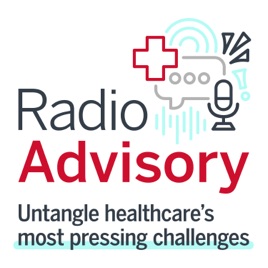
4.9
156
208
Radio Advisory
Advisory Board
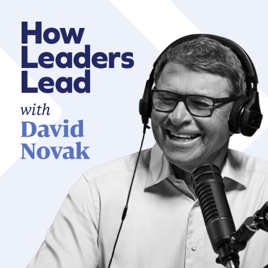
4.8
514
261
How Leaders Lead with David Novak
David Novak
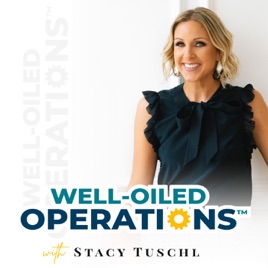
4.9
493
840
Well-Oiled Operations with Stacy Tuschl
Stacy Tuschl
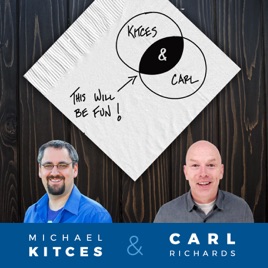
4.6
200
132
Kitces and Carl - Real Talk for Real Financial Advisors
Michael Kitces, MSFS, MTAX, CFP and Carl Richards, CFP
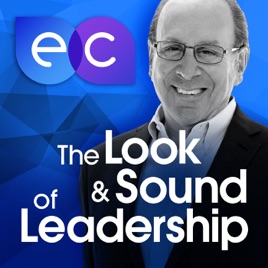
4.8
1093
244
The Look & Sound of Leadership
Essential Communications - Tom Henschel
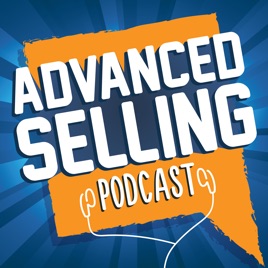
4.3
340
955
The Advanced Selling Podcast
Bill Caskey and Bryan Neale: B2B Sales Trainers, Business Strategists and L
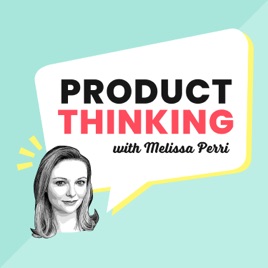
4.8
134
159
Product Thinking
Melissa Perri
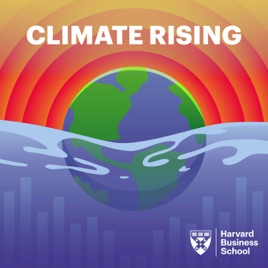
4.7
49
77
Climate Rising
Harvard Business School Business & Environment Initiative
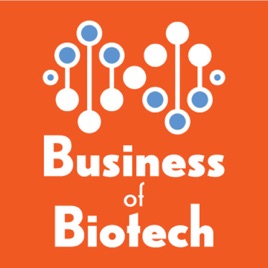
4.8
75
191
Business Of Biotech
Matt Pillar
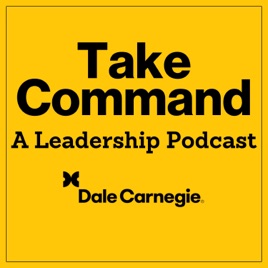
4.7
109
61
Take Command: A Leadership Podcast
Dale Carnegie Flagship Podcast, Joe Hart



